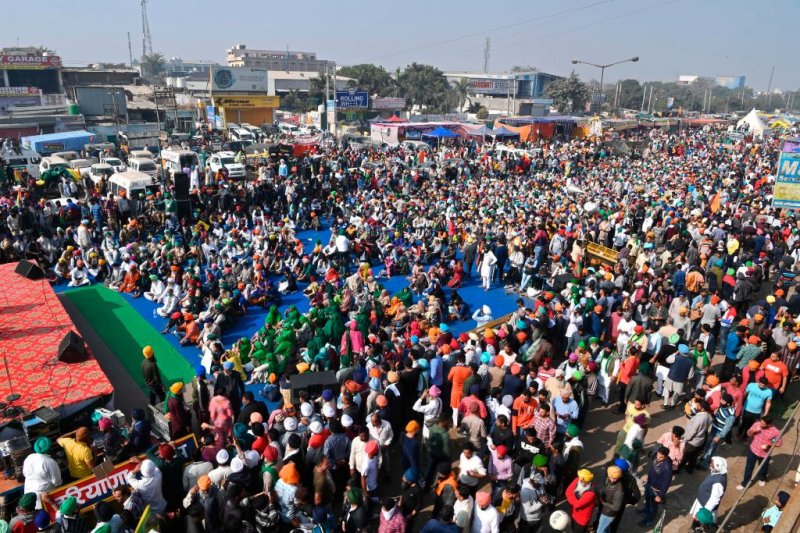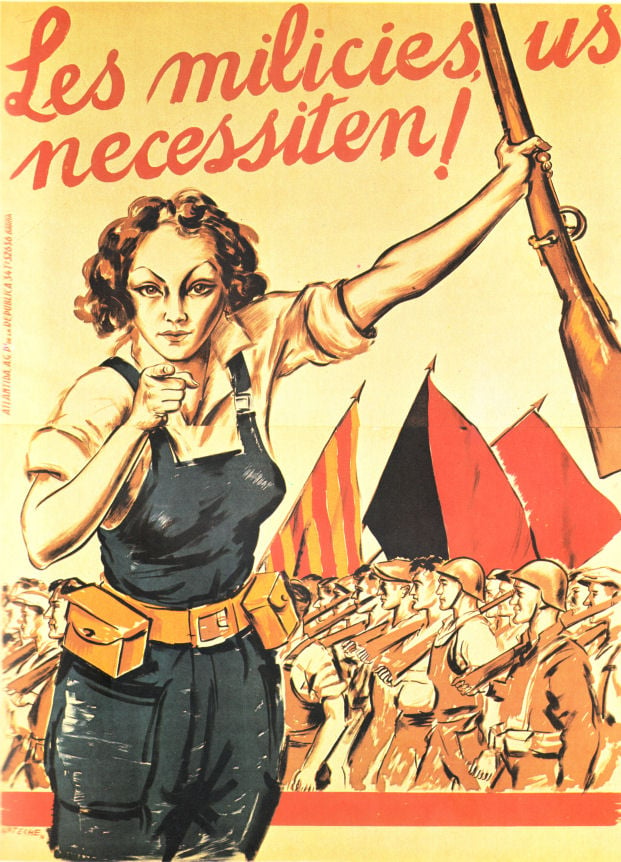Indian General Strike (2020)
Thu Nov 26, 2020

Image: Farmers gather as they take part in a nationwide general strike to protest against the recent agricultural reforms at the Delhi-Haryana state border in Singhu on December 8, 2020. From Sajjad HUSSAIN
On this day in 2020, the largest strike in world history began in India when 250 million workers from across the country struck both in solidarity with farmers protesting en masse and to demand better working conditions for themselves.
The strike took place following months of protest from Indian farmers, a response to three farm acts passed by the Parliament of India in September 2020. According to protesters, the farm acts would leave small farmers, the vast majority, at the mercy of large corporations. Poor farmers were already desperate before the laws were passed - in 2019 alone, 10,281 agricultural workers committed suicide.
Dozens of farm unions began organizing protests demanding the repeal of these laws. After failing to get the support of their respective state governments, the farmers decided to pressure the Central Government by marching to Delhi en masse.
The farmers arrived at Delhi on November 25th, 2020 and were met by police, who employed the use of tear gas and water cannons, dug up roads, and used layers of barricades and sand barriers to try and stop their march.
On November 26th, 250 million workers from all over the country initiated a general strike in solidarity with the farmer’s struggle. According to Tricontinental: Institute for Social Research, trade unions issued a twelve-point charter of demands which included “the reversal of the anti-worker, anti-farmer laws pushed by the government in September, the reversal of the privatisation of major government enterprises, and immediate [Covid] relief for the population”.
Farmer protests continued for more than a year, featuring mass marches, clashes with police, and many failed negotiations between farmers’ unions and the government. Rakesh Tikait, a leader with Bharatiya Kisan Union (English: Indian Farmers’ Union) stated in October 2021 that approximately 750 participants have died in the protest.
Among the dead was a Senior Superintendent of Police in the city of Sonepat, who committed suicide, saying he could not bear the pain of the farmers. His suicide note read “Bullets fired from the guns kill only those whom they strike. The bullet of injustice, however, kills many with a single stroke… It is humiliating to suffer injustice.”
In a televised address on November 19th, 2021, Indian Prime Minister Narendra Modi stated that his government would repeal the three acts in the upcoming winter parliamentary session in December. The national spokesperson of the Bharatiya Kisan Union, Rakesh Tikait, stated the protests would only cease once the laws were repealed.
The film actor Deep Sidhu also joined the protests, and was quoted as having told a police officer the following: “Ye inquilab hai. This is a revolution. If you take away farmers’ land, then what do they have left? Only debt.”
- Date: 2020-11-26
- Learn More: thetricontinental.org, en.wikipedia.org.
- Tags: #Labor, #General Strikes, #Protests.
- Source: www.apeoplescalendar.org


wait, this was during the pandemic when we couldn’t even go out, and it didn’t make the news back then? crazy
And give us ideas? That being said, I did hear about this when it was happening (American)
yeah, riots happened in America, i didn’t know happened in India. I’m not accusing anyone of anything, I’m just surprised